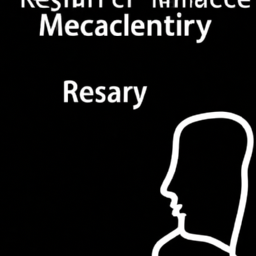Employee Who Sought to Tape-Record Meetings Loses ADA Claim
As a Human Resources executive of a fortune 500 company, I understand the need to effectively manage difficult situations in the workplace. The 10th U.S. Circuit Court of Appeals recently ruled on a case involving the denial of an employee’s request to tape-record meetings. This case provides a valuable lesson for HR professionals about the importance of accommodating employees who require assistance due to a disability.
The case in question revolved around an employee who requested to tape-record meetings due to a disability. The employee had previously been diagnosed with a mental illness and sought to record the meetings as an accommodation for his disability. The employer denied the employee’s request, citing privacy and security concerns. The employee subsequently filed a lawsuit alleging that the employer had violated the Americans with Disabilities Act (ADA).
The 10th Circuit Court of Appeals ultimately ruled in favor of the employer. The court determined that the employer had shown a good-faith effort to accommodate the employee’s disability. The court noted that the employer had offered alternative accommodations, including allowing the employee to take notes during the meetings, providing a private room for the employee to take notes, and allowing the employee to bring a support person to the meetings. The court also noted that the employer had provided the employee with additional training and support in order to help him manage his disability.
In ruling in favor of the employer, the court noted that the ADA does not require employers to provide accommodations that would cause an undue burden on the employer. The court noted that the employer had provided reasonable accommodations for the employee and had acted in good faith in denying the employee’s request.
This case serves as an important reminder for HR professionals about the importance of providing reasonable accommodations for employees with disabilities. Employers should strive to provide reasonable accommodations for employees with disabilities that do not cause an undue burden on the employer. Employers should also be willing to work with employees to find reasonable accommodations that meet the needs of both the employer and the employee.
It is also important to note that employers should not deny requests for accommodations without first considering possible alternatives. The 10th Circuit Court of Appeals noted that the employer in this case had taken the time to consider possible alternatives before denying the employee’s request. Employers should always take the time to consider all possible alternatives and work with employees to find reasonable accommodations that meet the needs of both parties.
The 10th Circuit Court of Appeals’ ruling in this case serves as an important reminder for HR professionals about the importance of accommodating employees with disabilities. Employers should strive to provide reasonable accommodations for employees with disabilities that do not cause an undue burden on the employer. Employers should also take the time to consider all possible alternatives and work with employees to find reasonable accommodations that meet the needs of both the employer and the employee.



